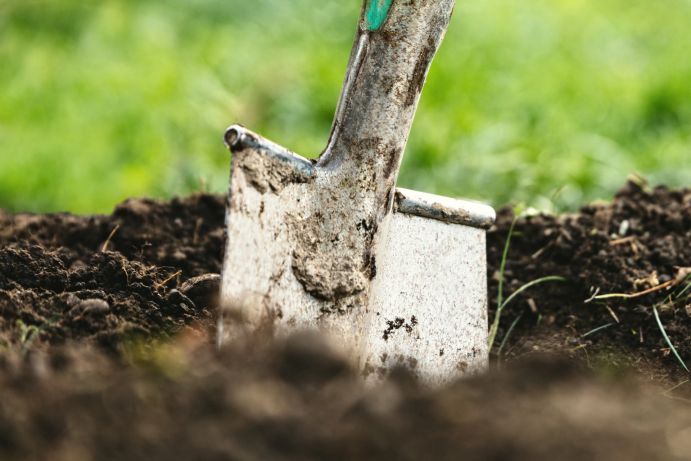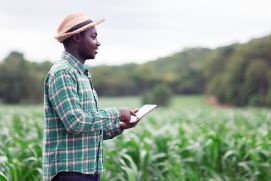Action 15: Maintaining healthy soils and sustainable use of land
We will develop a holistic understanding of how to maintain healthy soils and use land sustainably.
Where do we stand?
At present, research usually only looks at individual segments of land use – such as soil and water quality, nutrition, infrastructure, nature conservation and climate protection. We cannot solve conflicts of interest between growing settlement areas, agricultural use and the requirements of environmental and climate protection in this way. The aim is to bring economic and ecological land use more closely into harmony.
What are the research needs?
Instead of research in individual segments, we need systemic, integrated analyses, especially at the landscape and regional level. To this end, approaches to solutions in agriculture and forestry as well as in local and urban planning must be more closely integrated with nature conservation and water management in future. The issue of how soil should be managed and land used in the face of conflicting requirements is crucial to the sustainable development of urban and rural areas. For rural areas in particular, integrated solutions are needed which take account of the different interests between nature conservation, recreation and use. This also applies in the international context. This calls for transdisciplinary research cooperation and scientifically based concepts in which both the causal relationships and regional (natural and sociocultural) characteristics are taken into account. This is the only way to ensure that measures can have a long-term, sustainable and global impact on society and contribute to improving or securing local living conditions – including the preservation of intact ecosystems as a basis for life. In Sub-Saharan Africa, for example, the SASSCAL and WASCAL Africa Centres are already creating the conditions for this by bringing together the necessary scientific and social actors. Future research projects will be devoted to the development of modern, environmentally and socially compatible land management. Digitalisation, knowledge transfer and governance are key instruments in this context.
Implementation steps and milestones
- We will develop new processes, technologies and products that lead to optimisation of soil functions; we will also work out new approaches for sustainable soil and land use with which existing dual- or multiple-use concepts can be further developed.
- From 2020, we will fund research into the complex interplay between soil, soil organisms and plants in cultivation systems. From 2020, we will also participate in a European funding initiative on soil research. The aim will be to investigate relevant key biological processes in the rhizosphere, the zone of soil around the roots of plants, in order to maintain or even improve the performance of soil ecosystems for efficient plant nutrition, humus balance and climate protection.
- By 2025, we want to establish a web platform that makes it easier for stakeholders from agriculture and science and policymakers to evaluate and implement sustainable land use concepts.
- The results will be available from 2025 onwards, along with more far-reaching approaches to international sustainable land management that will point out solutions towards ecologically, economically and socially sustainable development using knowledge-based measures in the areas of digitalisation and governance.
- We are funding resource-efficient urban districts for the future and the planning of urban development processes geared towards the efficient use of water, land and material flows in more than 20 model municipalities in Germany. Initial findings will be available in 2021. In 2022, we will start the implementation phase.
Last updated on





